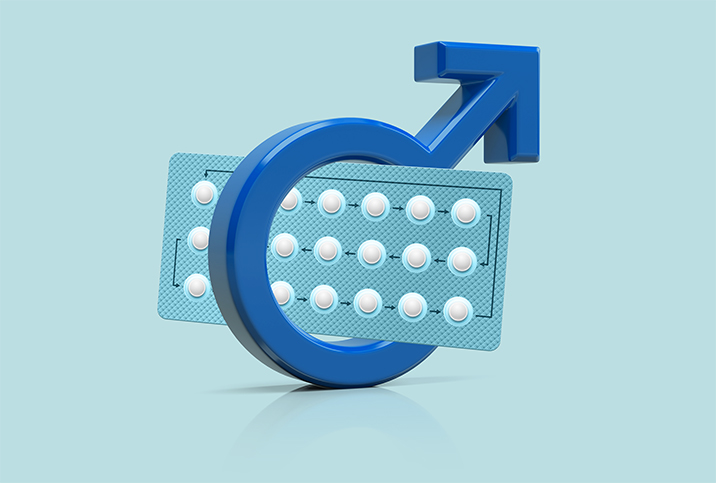Can I Take Plan B and the Birth Control Pill Together?

Plan B, or the morning-after pill, is a great form of emergency contraception to take if you are concerned about pregnancy after having unprotected sex or a birth control failure. It can lower your chances of getting pregnant by 75 percent to 89 percent if you take it within three days after unprotected sex, according to Planned Parenthood.
"Levonorgestrel is a progestin-only pill which delays follicular development when administered before the level of luteinizing hormones increases," explained Kevin Alten, M.D., an OB-GYN and associate professor at Marietta College in Ohio. "This prevents ovulation."
You can take Plan B up to five days after unprotected sex, though it becomes less effective. It's not 100 percent necessary, but it's best to take it immediately after having unprotected sex, although it does not work if you are already pregnant.
Few studies have investigated the effects of exposure to emergency contraceptives during pregnancy. But a 2005 study published in Fertility and Sterility found no increase in risk to either the pregnant woman or the developing fetus for women who used the morning-after pill. Therefore, using this pill cannot cause any harm to you or your child if you are already pregnant.
It's also important to note that Plan B is not an abortion pill.
How does taking Plan B interact with a birth control pill?
If you're taking the morning-after pill because you skipped your birth control pills, chances are you have safety concerns about taking both birth control and Plan B together.
However, Kiarra King, M.D., a board-certified OB-GYN in Chicago, offered this note of reassurance:
"Yes, it's safe to do so," King said. "Emergency contraception can be used in cases of unprotected sex or inadequately protected sexual intercourse. So if someone was taking birth control pills but missed a dose, two or three, that would be considered inadequate protection."
It's best to resume any regular contraceptive method immediately after the use of Plan B. However, you should refrain from sexual intercourse or use barrier contraception for seven days, King advised. Barrier contraceptives include condoms, diaphragms and spermicides.
How do some medications interact with the Plan B pill?
Even though taking birth control and Plan B together is safe, certain medications may reduce the efficiency of progestins.
"They include but aren't limited to certain blood thinners, diabetic medications, seizure medications, just to name a few," King noted.
As indicated in a levonorgestrel medical summary, other drugs that may diminish the effect of progestins include:
- Acitretin
- Barbiturates
- Griseofulvin
- Mifepristone
- Retinoic acid derivatives
- St. John's wort
If you are on any of these medications, you should check with your doctor to determine the best course of action. In the event you are taking any other form of medication, confirm with your OB-GYN whether they interfere with the efficacy of the morning-after pill.
You should not take Plan B if you are allergic to levonorgestrel or any other ingredients in the pill.
What are the side effects of taking the Plan B pill?
Since Plan B contains a higher hormone dose than a regular oral contraceptive pill, a mixing of birth control and Plan B expose you to a higher level of hormones for that duration than would ongoing use of either combined or progestin-only oral contraceptives.
As a result, various short-term side effects can happen regardless of whether you were taking prescribed birth control pills. Most of these effects usually subside after a few days:
- Nausea
- Headache
- Abdominal pain
- Dizziness
- Irregular bleeding
- Breast tenderness
- Fatigue
When will my next period be after taking the Plan B pill?
After emergency contraceptive use, Alten noted that your menstrual period usually occurs within one week of the expected time.
"Some patients experience irregular bleeding or spotting in the week or month after treatment," Alten said. "If emergency contraception is taken earlier in the cycle, it is more likely that a woman will experience bleeding before the expected menses."
In most cases, irregular bleeding associated with emergency contraception usually resolves without treatment.
It's important to note that emergency contraception should not be used as a long-term form of contraception and is best used episodically. King advised that while it may be used more than once in any given cycle, options for long-term, reliable contraception should be considered. No follow-up is usually necessary after the use of Plan B.
However, if you are experiencing a delay in menses of more than a week, this may be consistent with pregnancy, according to King. In such a case, taking a pregnancy test may be a good idea to determine if you are pregnant.
"If pelvic pain develops or bleeding is persistent, this could indicate a spontaneous miscarriage or ectopic pregnancy," King added. In such a case, medical care is warranted.


















